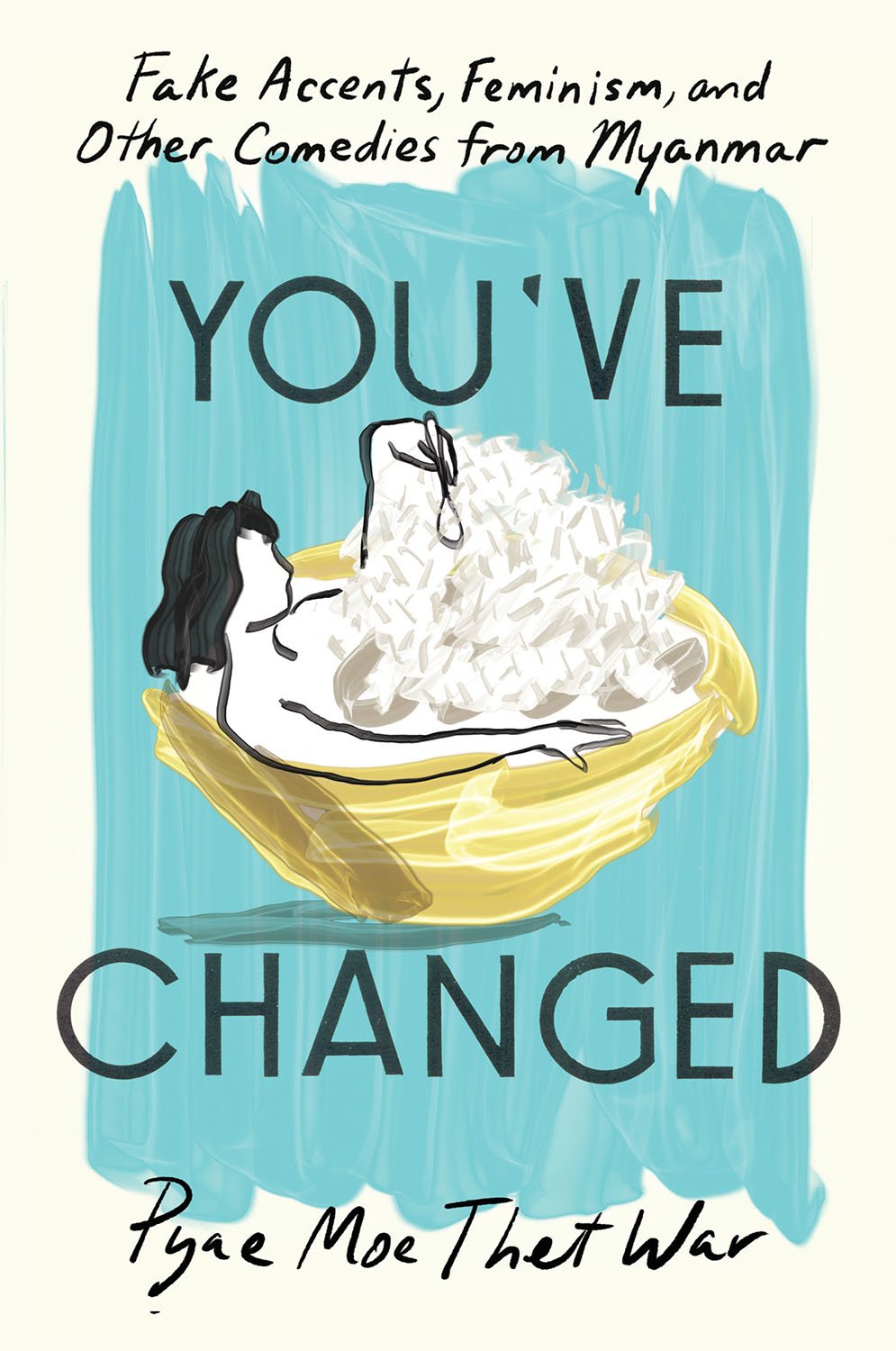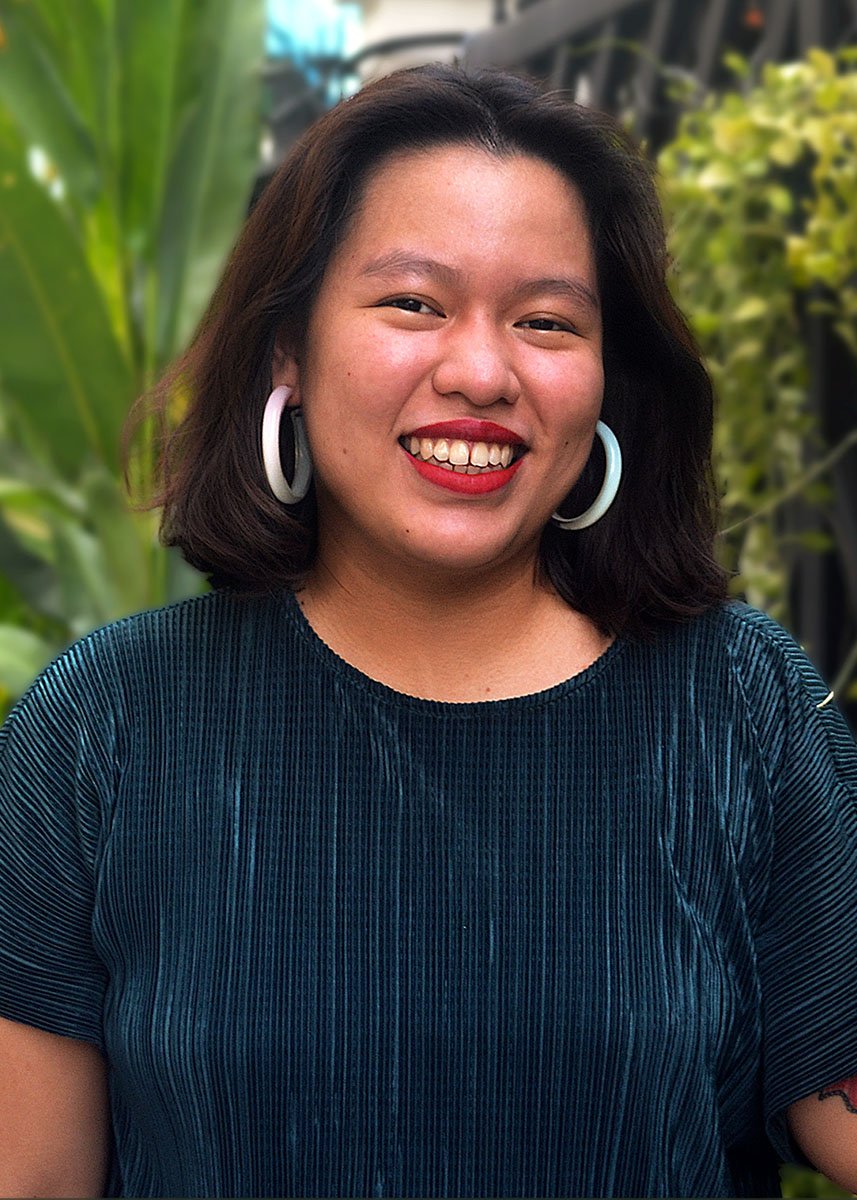
Pyae Moe Thet War’s debut begins and ends with writing. A collection of winding, looping personal essays, You’ve Changed: Fake Accents, Feminism, and Other Comedies from Myanmar follows a writer’s coming-of-age, threading through small revelations as Moe Thet War reconciles her life and her art. Anchoring each piece is her lifelong ambition to write; as a child, she drags her mother to bookstores, attends a summer writing camp, and daydreams about being published. But even without these anecdotes, it’s easy to see why she chose writing: she’s good at it.
Despite her conversational tone, Moe Thet War is decisive and deft, even when her topics are expansive. She unravels an intimate topic—her love for baking cookies and cakes or her laundry habits, for example—to reconcile who she is as a woman, as a friend and daughter, and as a writer. Each piece considers a facet of the author’s hybrid identity, rooted in her Myanmar heritage. It is clear that she has spent time and effort honing her technique; we get glimpses of this process. But the heart of You’ve Changed is her journey to figure out what she should write about and how.
For the entirety of her life, Moe Thet War felt and internalized the effects of Western colonialism; her English-only education at a privileged international school and interest in international literature made it pronounced and inevitable. When she left for undergraduate study in the US, she attended a mostly white liberal arts college. There, her craft was hindered by her desire to avoid racialization; in a creative nonfiction course, to submit something about her “very Brown, very non-Western life” felt like a “cop-out,” since her classmates and teachers engaged with her work less seriously for fear of being branded racist. Instead, she decided to empty her work of the context that seemed to endlessly fascinate classmates, acquaintances, even taxicab drivers: the Southeast Asian country where she was from. She writes:
For a long time, my only creative goal was to have a stranger read my writing without once realizing that I wasn’t white, and specifically, that I was Myanmar. . . . Instead of lying, I just left it all out—all the nuance and details and anecdotes about my life and culture that shaped my view of the world.”
Avoiding tokenization or tropishness while also giving readers the full picture is a fine balance for every memoirist; it can feel especially loaded for those navigating a prescriptive and biased marketplace. But it turns out that Moe Thet War could not be “funny or unflinching or thoughtful or any of the other things I wanted to be on the page if all I was focused on was not being Myanmar . . . . I had to demonstrate to myself that I could and should have both of those things—I could have a voice that was funny and vulnerable and sharp, and that was also Myanmar. I made my peace with this, first hesitantly, then openly, then proudly.”
It’s fitting—it’s unavoidable—that Moe Thet War’s writing reflects how her heritage informs every part of her life.
After all, she concludes, the only solution she could offer for tired depictions of Myanmar as enigmatic and mysterious was to add her funny, vulnerable, and sharp voice to the mix. She didn’t necessarily need to write about being Brown, but she did have to write about being herself. This meant figuring out the contours of a liminal identity, shaped somewhere between traditional values and changing convictions, privilege and prejudice, Myanmar and English. It’s fitting—it’s unavoidable—that Moe Thet War’s writing reflects how her heritage informs every part of her life, including those parts heavily colored by her time abroad.
In “Laundry Load,” she discusses the concept of hpone, which refers to “this innate, mystical power that men supposedly possess that is believed to be sapped if men’s clothes come in contact with women’s . . . . applicable not just in laundry but across all aspects of culture, including, for instance, religion.” The structural embeddedness of hpone affects every Myanmar individual’s life, whether or not someone subscribes to these beliefs specifically. While Moe Thet War points out there are obviously analogs in other cultures, her experience has its specificities—in rituals around laundry, in the erasure of female genitalia, and so on. Therefore, when attending her first and subsequent performances of The Vagina Monologues, her viewings are shaped by hpone—and, more precisely, what it means for her to be Myanmar. “Laundry Load” meditates on the individual struggle to establish a personal politics, complicated by loyalty and family and love, not framed by history or sociology, but rather in the author’s carefully rendered portraits of her interpersonal relationships.
It’s exactly when Moe Thet War dwells uncomfortably in between identities that her insights are strongest. She squirms when code-switching between Myanmar and American English; she recognizes that her English fluency affords her an undeniable immense privilege, seemingly at odds with her desire to demand recognition for and represent the Myanmar language. She is personally limited in her Myanmar proficiency, adding to this cognitive dissonance, especially when she is then marked as alien while in the US or England.

Photo by Christian Brown.
Being alien is central in “Paperwork,” which opens with her father unwilling to have his children marry a non-Myanmar person. This emotional friction unfolds into an exploration of the overwhelming amount of paperwork—of bureaucratic, slogging work—required to keep her romantic relationship afloat across two countries and two citizenships. “Paperwork” straddles Moe Thet War’s frustration at the administrative labor necessary to stay with her boyfriend and her uneasiness that marrying said boyfriend—and then applying for English citizenship, giving up her Myanmar passport—would effectively cut her off from her nationalist father.
Reading You’ve Changed is akin to conversing late into the night with an intelligent friend. There is a bounty of asides and caveats to reassure the reader of the author’s self-awareness and humor. At times, these reservations can blur the emotional point, especially when the essays run long or past their climax, dampening the overall effect. Accordingly, it’s the moments when Moe Thet War lays down her guard that her writing truly shines. When she makes a straightforward, vulnerable statement, it lands like a punch to the gut.
The book’s powerful concluding essay is “Myanglish,” grounded again in the author’s love for writing and language. It is a profoundly honest confession, in which she acknowledges that her Myanmar is not where she’d like it to be. It’s not just her cultural pride or her reverence for the written word that’s on the line; this imbalance clearly strikes at the core of her self-identity, and who she could have been, and who she might be. Still, she admits unflinchingly: “I had a pact with myself not to write this essay until I could write it in both English and Myanmar, but now I don’t see when or even if that will ever happen.”
Issues of multilingualism, words, and fluency, as well as moments of radical vulnerability, are hallmarks of feminist memoir. It is no coincidence that Moe Thet War’s collection ends with “Myanglish.” Despite her many insights and personal milestones, her identity will forever be marked by its liminality—an uneasy but meaningful navigation across different modes of being. But central to her life now—and, most likely, in the future—is to be a writer. It is an identity just as fraught as any other, and in You’ve Changed, she gives this acknowledgement its due.

